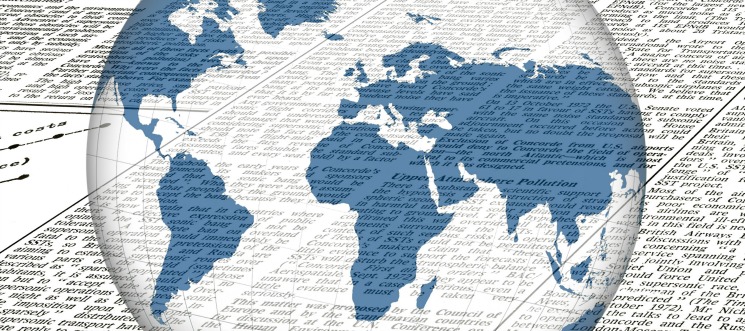Helsinki Commission leadership, members, and initiatives are frequently featured in both the U.S. and foreign press.
RELATED CONTENT

Bipartisan House members push Biden to allow Poland ...
Oct 30, 2024
US Weighs NATO Ally’s Offer To Shoot Down Russ...
Nov 01, 2024
Bipartisan report urges rethink of America’s Russia ...
Sep 28, 2024
Chairman Wilson Issues Statement on Government Raids...
Oct 25, 2024WASHINGTON—Today, US Helsinki Commission Chairman Joe Wilson (SC-02), issued the following statement regarding the government raids on the homes of the two Tbilisi, Georgia-based researchers with the US-based Atlantic Council: “It […]

BRIEFING—Georgian Dream’s Escalating Crackdown on Di...
Feb 11, 2026Rayburn House Office Building, Room 2358-A Streaming live here Since October 2024, Georgian Dream, Georgia’s ruling party, has plunged the country into its worst human rights crisis since independence. They […]
Georgian Dream’s Escalating Crackdown on Dissent
Feb 11, 2026Since October 2024, Georgian Dream, Georgia’s ruling party, has plunged the country into its worst human rights crisis since independence. They have passed more than 20 new laws that expand […]

Ranking Member Cohen Condemns Sentencing of Hong Kon...
Feb 09, 2026WASHINGTON—Congressman Steve Cohen (TN-9), the Organization for Security and Cooperation in Europe Parliamentary Assembly’s Special Representative on Political Prisoners, strongly condemns the 20-year prison sentence handed to media tycoon and […]

Bipartisan Helsinki Commission Leadership Urge Depar...
Feb 06, 2026WASHINGTON—Today, U.S. Helsinki Commission Chairman Senator Roger Wicker (MS), Co-Chairman Representative Joe Wilson (SC-02), Ranking Member Senator Sheldon Whitehouse (RI), and Ranking Member Representative Steve Cohen (TN-09) and nine other […]

HEARING—Securing Syria’s Transformation by Diminishi...
Feb 03, 2026Cannon House Office Building, Room 360 Stream live here With the fall of Bashar al-Assad, Syria and its partners have a historic opportunity to degrade Russia’s ability to project force across […]

Securing Syria’s Transformation by Diminishing Russi...
Feb 03, 2026With the fall of Bashar al-Assad, Syria and its partners have a historic opportunity to degrade Russia’s ability to project force across the Mediterranean, the Middle East, and Africa. Syria […]

Bipartisan Helsinki Commission Leadership Ask Admini...
Jan 15, 2026WASHINGTON—Today, U.S. Helsinki Commission Chairman Senator Roger Wicker (MS), Co-Chairman Representative Joe Wilson (SC-02), Ranking Member Senator Sheldon Whitehouse (RI), and Ranking Member Representative Steve Cohen (TN-09) sent a letter […]

HEARING—Bosnia and Herzegovina at a Crossroads: Thir...
Dec 18, 2025Russell Senate Office Building, Room 232-A Stream live here Thirty years ago this month the United States brokered the Dayton Peace Accords that ended the Bosnian War and brought […]

Bosnia and Herzegovina at a Crossroads: Thirty Years...
Dec 18, 2025Thirty years ago, the United States brokered the Dayton Peace Accords that ended the Bosnian War and brought peace to Bosnia and Herzegovina (BiH). BiH now sits at a crossroads […]

Chairman Wicker Applauds Passage of the National Def...
Dec 17, 2025WASHINGTON—Senator Roger Wicker (R-Miss.), Chairman of the Senate Armed Services Committee and the U.S. Helsinki Commission, today applauded final passage of the Fiscal Year 2026 National Defense Authorization Act (FY26 […]

BRIEFING—From Production to Procurement: How Europe...
Dec 10, 2025Rayburn House Office Building, Room 2358-C Stream live here As Russia’s full-scale war against Ukraine enters its fifth year, Kyiv is struggling to supply its troops and lacks the resources […]

From Production to Procurement: How Europe and Ukra...
Dec 10, 2025As Russia’s full-scale war against Ukraine enters its fifth year, Kyiv is struggling to supply its troops and lacks the resources to strike military targets deep inside Russia. However, Ukraine […]

